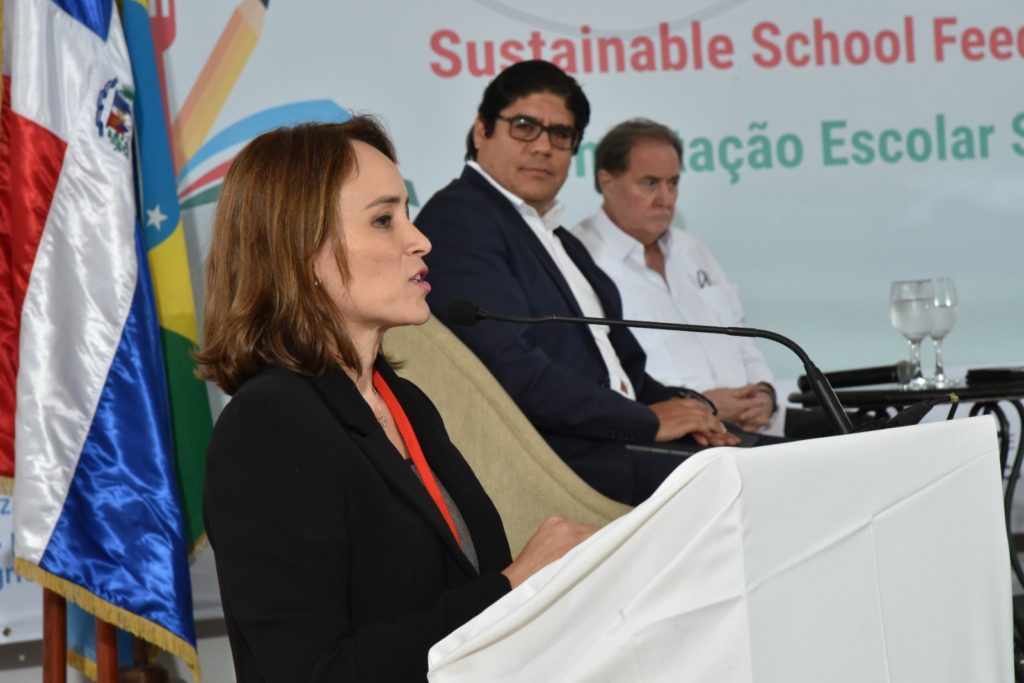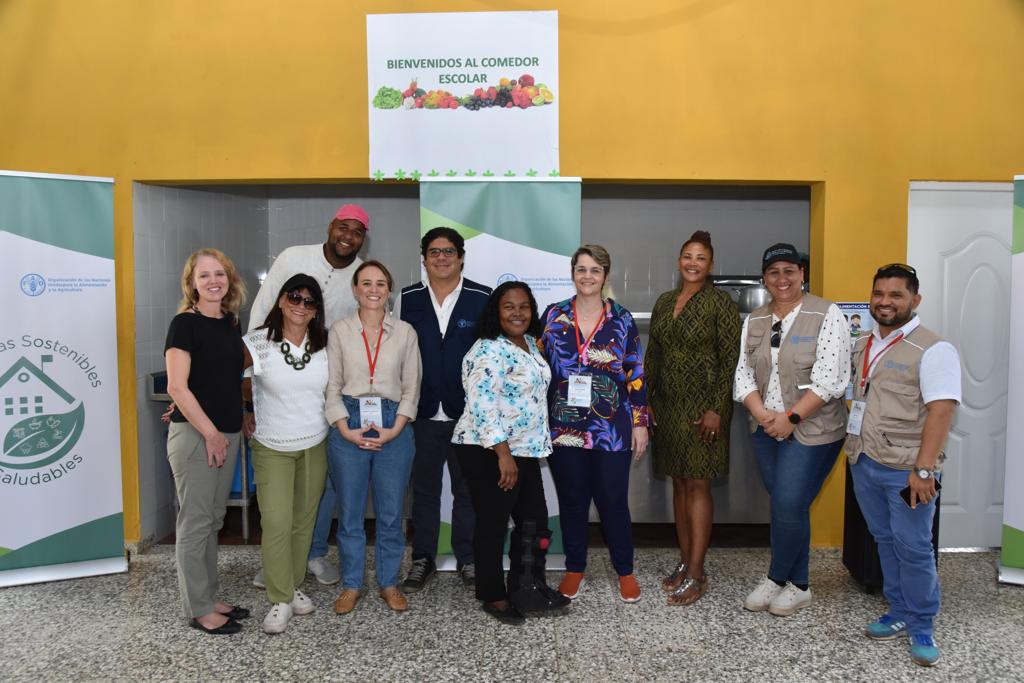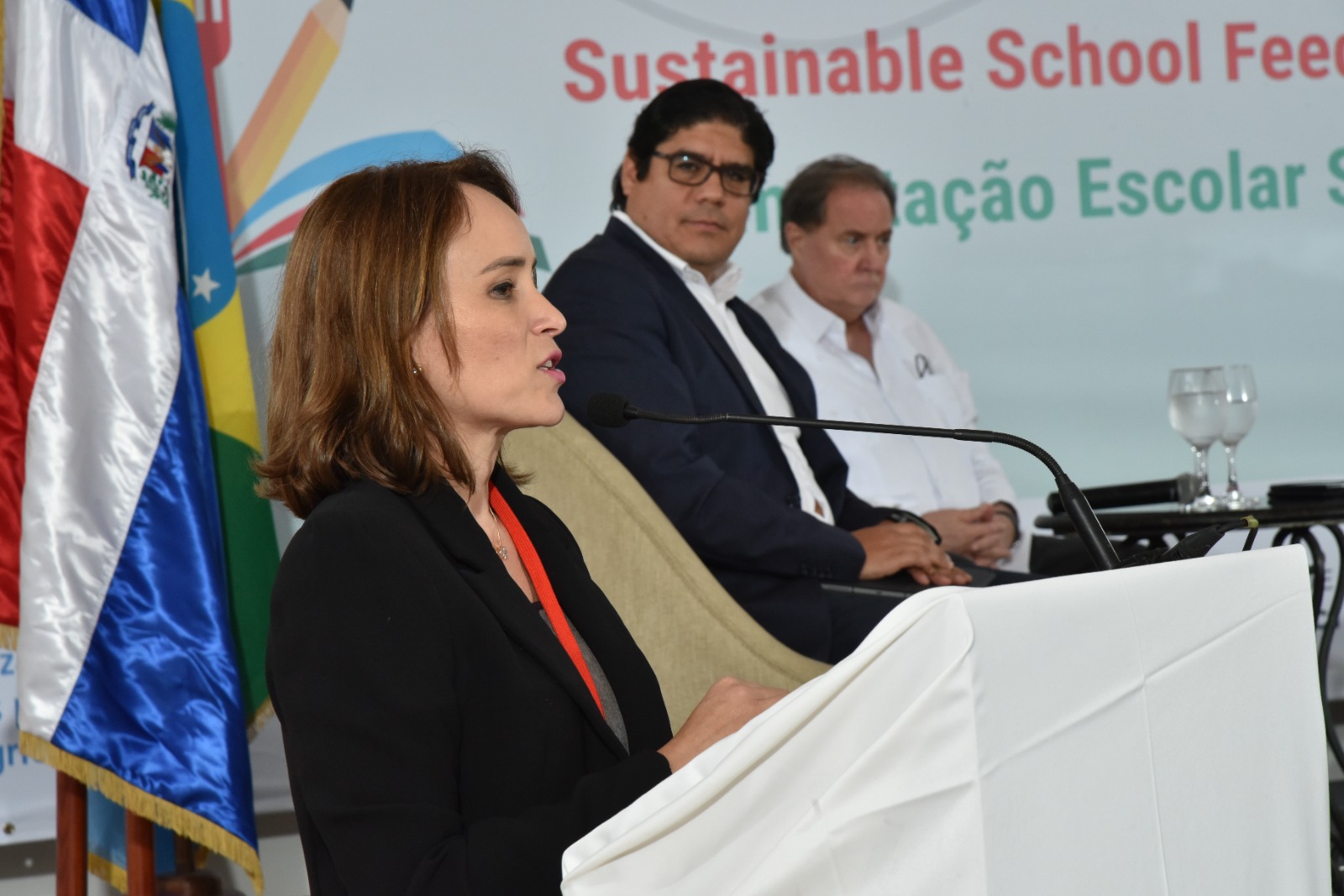In an interview with RAES, Fernanda Pacobahyba defends the exchange of knowledge among the countries to strengthen the school feeding policy in the region
Paulo Beraldo
Santo Domingo, Dominican Republic, April 03, 2023 – Brazil has a strong commitment and responsibility with the development and strengthening of school feeding policy in Latin America and the Caribbean. This is the assessment of Fernanda Pacobahyba, president of the National Fund for Educational Development (FNDE) of the Ministry of Education of Brazil.
In an interview with the Sustainable School Feeding Network (RAES, for its Spanish acronym) carried out after a visit in a rural school in the Dominican Republic, Fernanda says that Brazil “cannot avoid sharing its successful examples in school feeding”.
The visit was carried out within the framework of an international technical mission with 10 countries developed by the regional project Consolidation of School Feeding Programmes in Latin America and the Caribbean, developed jointly by the FNDE, the Brazilian Cooperation Agency of the Ministry of Foreign Affairs (ABC/MRE ) and the Food and Agriculture Organization of the United Nations (FAO).

“I was amazed several times when I heard from such extraordinary people the importance of our work in Brazil and this International Cooperation to improve Dominican school feeding policy”, she said. “In an environment of globalization, Brazil has a fundamental role in South America, Latin America and the Caribbean because we have a lot to share”, she added, highlighting the support in the formation of human and financial capital. “We cannot avoid participating in this movement”.
Sustainable School
After visiting the Mata Limón School, in the Dominican city of Monte Plata, Fernanda stated that sustainable school feeding experiences like this “should be everywhere”, reinforcing the role of the Brazil-FAO International Cooperation in school feeding in the LAC region. This school has adequate infrastructure in the school cafeteria, its own kitchen, school garden and even an experiment to collect rainwater.
It also has a strong relationship with the local community and family farming in the region, which is evidenced by the presence of fathers and mothers in the management of the school feeding programme. This school was part of the Sustainable Schools methodology, built by the Brazil-FAO International Cooperation with the countries of the region over the last decade. Since then, there are 23,000 Sustainable Schools in 13 countries, benefiting 1.6 million students.
“I was able to experience a climate very close to our semi-arid region in Ceará (Brazilian state), with high temperatures, immense difficulty in accessing water, but an amazing work of training the girls and boys”, she said. The students’ knowledge about the food production chain and sustainability caught the attention of the president of the FNDE.
“What impressed me the most was the resourcefulness of each of the students in describing the importance of school meals in their lives and, even more, their excitement in composing the School Food and Nutrition Council”, she stated, adding that this reinforces the importance of food and nutrition education (FNE) actions.

“It is very clear from everything we have seen during the visits how much power this has to transform people’s lives”, she observed. “We listened to the most important actors in this story: our children. Legitimately, they talk about how important this is and how much they like this food”.
For her, visits like this technical mission are also an opportunity to think about Brazil’s role with neighboring countries, as well as seeing cultural affinities and experiences that can be inspiring. “I clearly see a turning point in our country for us to resume these ties and be closer to neighboring countries. This is another example of partnership and collaborative work to ensure advances in education not only in Brazil, but around the world”.
Earlier, on the first day of the event, Fernanda had already highlighted the importance of the Brazil-FAO International Cooperation Program. “We have been in partnership for 14 years to ensure healthy and quality food in schools, boost family farming and encourage the creation of sustainable school feeding programmes. Improving these actions is fundamental for the social and economic development of our partner countries.”
Fernanda remarked that she is returning with the determination to increase the visibility of the National School Feeding Programme (PNAE), “the most beautiful initiative of all time in Brazil, and the one that has the most power to establish ties and bonds that will last in time”.



